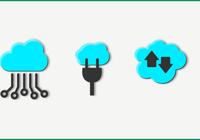
JuiceFS is a POSIX shared file system designed for the cloud and contains three aspects:
- Designed for the Cloud: JuiceFS was born entirely for cloud computing, popularly known as Cloud Native. We believe we’ve created the best storage solution in the cloud computing space. We support all the global mainstream cloud platforms in the west and the east, including Amazon Web Services (AWS), Google Cloud Platform (GCP), Microsoft Azure, Digital Ocean, Backblaze B2, Ali Cloud, Tencent Cloud, UCloud, Qingyun, Jinshan Cloud, NetEase Cloud, and Qiniu storage platform. Engineers using these cloud platforms can easily get started with JuiceFS. JuiceFS saves data in the account of the customer’s own object store – giving you complete control of your data. Data security is guaranteed, storage scale is as flexible as the underlying platform and does not require additional maintenance.
- Compatible with POSIX: Unlike object storage, JuiceFS uses the oldest and most widely used POSIX APIs in the storage domain, (ie, open, read, write, and close, etc). POSIX is supported by almost all programming languages and data management platforms. At the OS level, JuiceFS is implemented via FUSE and is directly attached to the host and looks just like a local filesystem. A large number of existing applications and tools can be directly accessed without any modification, just as simple as using a local disk.
- Consistent Multi-Client Sharing: This is the biggest difference between JuiceFS and many cloud drives. JuiceFS can be mounted at the same time by multiple machines (supporting more than 1000 nodes without a single VPC limit) while reading and writing, and provides guaranteed strong consistency.
What is the value of these three points? An almost unlimited capacity storage system that can be accessed from anywhere. JuiceFS has a low learning curve, no/super-low maintenance, and makes many distributed systems challenges simply go away. Some example use cases include:
- Data backup and recovery: because POSIX is the favorite interface for operation and maintenance engineers and none of them.
- A full-scale data store for Hadoop or Spark clusters, including data warehouses such as Hive.
- A shared storage volume in a container cluster to easily persist and share container data.
- Replace existing NAS or NFS setups with unlimited capacity cloud storage.
- Data mirroring: simplifying the challenge of moving data across multiple locations.
- A global shared space to facilitate the exchange of engineers or hosts, eliminating the need for copying files and having versions get out of sync.
- and many, many more uses.
If you have any data challenges, our expert storage team is here to help. Please email us at: hello at juicedata.io
To start a free 1TB trial, signup at: https://juicefs.com












